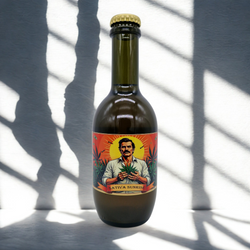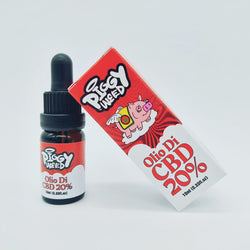Today we talk about the properties of herbal teas, herbal or spice-based drinks that can be used for various therapeutic purposes. Herbal teas are real natural supplements that replace tea and sugary drinks by providing a healthy alternative rich in active ingredients. Some herbal teas help you digest better, others help you sleep, others help you detox… the world of herbal teas is really vast, but we will explore it together!
What are herbal teas and why are they good for you?
Drink herbal tea every evening It is good because it allows you to assimilate the principles of plants: in fact, herbal tea is obtained by infusing herbs, spices or other vegetables in hot water. The choice of plants, which, as we know, are natural medicines, determines the function that the herbal tea will have for the body. This is why these drinks have been used for centuries!
Nature offers us plants with the most disparate powers: some are antioxidants, others are sedatives, others still contain vitamins and minerals that our body may be lacking. Even herbal tea water is good, because it helps to keep your body hydrated. In short, drinking herbal teas every day allows you to take full advantage of the benefits of nature!
What are the healthiest herbal teas?
To introduce you to the world of herbal teas, we have chosen some 9 from the various properties, which can include the various benefits of this type of drink:
- Gunpowder
Gunpowder will appeal to tea lovers because it comes from the same plant, Camellia sinensis. In this case, however, the withered leaves are used, which are rolled and then dried. This particular tea stimulates digestion and gives energy thanks to its caffeine content.
- Chamomile
Chamomile is one of the most popular herbal teas in the world and has been used since ancient Egypt and Greece. It has always been drunk before going to bed to help you sleep and enjoy its calming powers combined with an excellent taste.
- Rooibos
Rooibos is a plant native to South Africa, whose scientific name is Aspalathus linearis. It is used to prepare a drink that resembles tea and for this reason it is called "red tea". benefits of red tea include antioxidant, anti-inflammatory and relaxing properties. Traditionally, rooibos is also used to treat skin problems such as eczema and allergies.
- Ginger
Ginger tea is loved by all those who care about the health of their digestive system. This herbal tea has been consumed in China for 5,000 years and has always been known for its strong therapeutic powers. Ginger is rich in antioxidants, aids digestion and with its spicy aroma helps to soothe problems associated with diseases such as colds.
- Hibiscus
Hibiscus tea has a tart flavor similar to cranberry, making it a favorite among those who enjoy strong flavors. It can be drunk hot or cold and has several benefits, such as maintaining healthy blood pressure and keeping cholesterol and blood sugar levels in check. Hibiscus is also an aid in weight loss.
- Lemongrass
Lemongrass is prized for its lemony aroma and is known as an aid to digestion and to help achieve pleasant relaxation and good sleep.
- Yerba Mate
Yerba mate tea is known throughout the world as a powerful energizer, so much so that it is compared to coffee. Its flavor is bitter, with earthy notes, but becomes very pleasant once sweetened. This drink is native to the Guarani tribes of South America but thanks to its properties it has become famous worldwide.
- Peppermint
Many herbal teas include peppermint because, in addition to providing a delicious minty aroma, this plant has a series of interesting benefits: it aids good digestion, fights bad breath, promotes relaxation and sleep.
- Passion flower
Passionflower tea offers numerous benefits, making it one of the most popular natural drinks to promote psychophysical well-being. One of the main effects is its ability to reduce stress and anxiety. Thanks to the calming properties of the plant, the tea acts as a natural sedative, helping to relax the nervous system without causing excessive drowsiness. This makes it ideal for those who experience moments of chronic tension or anxiety, as it can help improve mood and general well-being.
Herbal teas, side effects?
Too many herbal teas side effects? In some cases, yes. There is no precise indication on How many cups of herbal tea can you drink per day? but the key word is always moderation, especially if you are taking medications. In fact, some herbal teas can interfere with certain medicines and before starting a regular herbal treatment it is always a good idea to inform your doctor. Excessive consumption of herbal teas does not cause major problems, but it could cause a bit of stomach acidity and have an excessive diuretic effect. In addition, energizing herbal teas could cause, just like coffee, problems of nervousness and agitation. Which herbal tea can you drink every day?? The answer is: all of them! But in moderation, just like we would with coffee. When is it best to drink herbal tea?? There is no one-size-fits-all answer for all herbal teas: energizing ones are great as a substitute for coffee in the morning, while those with relaxing properties are ideal after dinner and before going to bed. Herbal teas that do not cause drowsiness can be an excellent snack.





